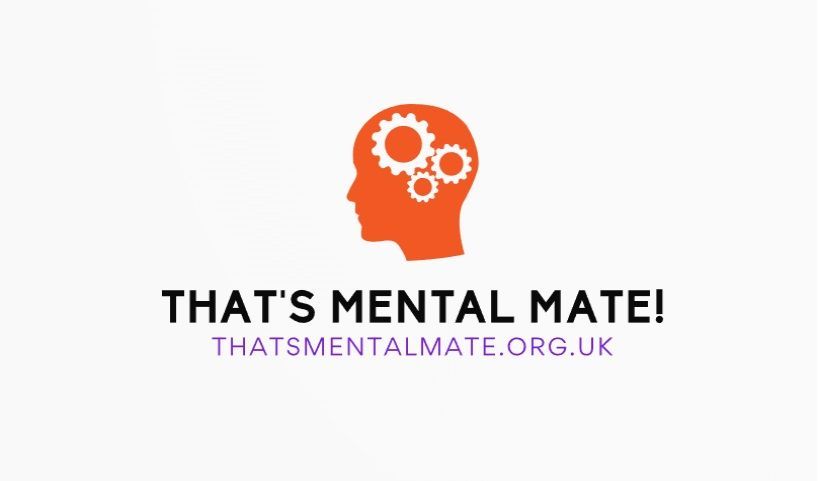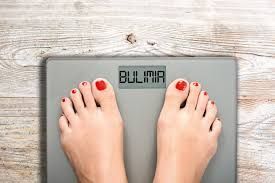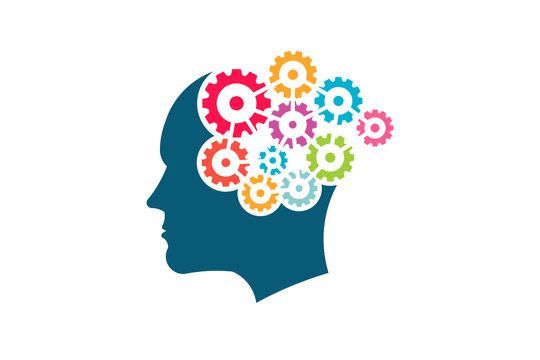What is bulimia?
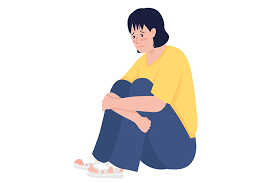
"Bulimia is an eating disorder and mental health condition.
People who have bulimia go through periods where they eat a lot of food in a very short amount of time (binge eating) and then purge the food from their body to try to stop themselves gaining weight.
Purging could include making themselves vomit, using laxatives (medicine to help them poo) or diuretics (medicine that makes you pee more), fasting or doing excessive exercise, or a combination of these.
Anyone can get bulimia, but it is more common in young people aged 15 to 25."
Taken from www.nhs.uk
What are the symptoms of bulimia?

"Symptoms of bulimia include:
- Eating very large amounts of food in a short time, often in an out-of-control way (this is called binge eating).
- Making yourself vomit, using laxatives or diuretics, fasting, or doing an extreme amount of exercise after a binge to avoid putting on weight (this is called purging).
- Fear of putting on weight.
- Being very critical about your weight and body shape.
- Mood changes eg. feeling very tense or anxious.
These symptoms may not be easy to spot in someone else because bulimia can make people behave very secretively."
Taken from www.nhs.uk
What are the treatments for bulemia?

"Getting help and support as soon as possible gives you the best chance of recovering from bulimia.
If you think you may have bulimia, see a GP as soon as you can.
They'll ask you questions about your eating habits and how you're feeling, and will check your overall health and weight.
If they think you may have bulimia or another eating disorder, they should refer you to an eating disorder specialist or team of specialists.
It can be very hard to admit you have a problem and ask for help. It may make things easier if you bring a friend or loved one with you to your appointment.
You can also talk in confidence to an adviser from the eating disorders charity Beat by calling their helpline on 0808 801 0677.
You can recover from bulimia, but it may take time and recovery will be different for everyone.
Your treatment plan will be tailored to you and should take into account any other support you might need, such as for depression or anxiety.
If you're over 18, you'll probably be offered a guided self-help programme. This involves working through a self-help book or online programme, and often includes keeping a diary and making a plan for your meals.
You'll be supported by a therapist during this process. You may also be offered cognitive behavioural therapy (CBT).
If you're under 18, you may be offered family therapy or CBT. This may be offered through your local children and young people's mental health services."
Taken from www.nhs.uk
Support
Beat Eating Disorders UK
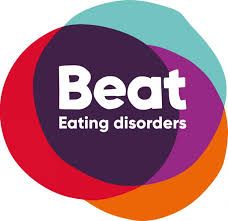
Around 1.25 million people in the UK suffer from these illnesses, many in secret. They are of all ages, genders and backgrounds – eating disorders do not discriminate. Eating disorders include bulimia, binge eating disorder, avoidant/restrictive food intake disorder (ARFID), other specified feeding or eating disorder (OSFED), and anorexia, which tragically has the highest mortality rate of any mental illness, though all eating disorders can be deadly. While this is the worst-case scenario, there are many ways in which eating disorders severely affect the quality of life of both those suffering and those who care about them. They steal childhoods, devastate relationships and pull families apart. But, with the right treatment and support, recovery is possible.
Links for NHS treatment
If you live in England and are aged 18 or over, you can access NHS talking therapies services for anxiety and depression.
A GP can refer you, or you can refer yourself directly without a referral.
NHS talking therapies services offer:
- talking therapies, such as cognitive behavioural therapy (CBT), counselling, other therapies, and guided self-help
- help for common mental health problems, like anxiety and depression
The problems that talking therapies services can treat include:
- depression
- generalized anxiety
- social anxiety
- panic and agoraphobia
- other phobias
- obsessive-compulsive disorder (OCD)
- post-traumatic stress disorder (PTSD)
- irritable bowel syndrome (IBS)
- body dysmorphic disorder
You need to be registered with a GP to get talking therapies on the NHS.
To self-refer for Talking Therapies click here.
